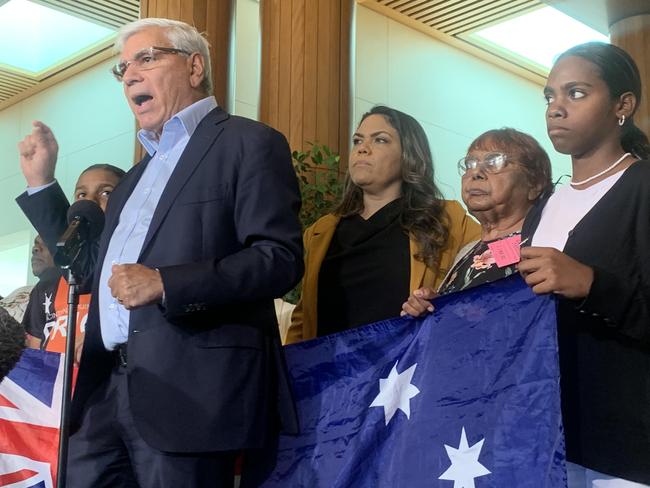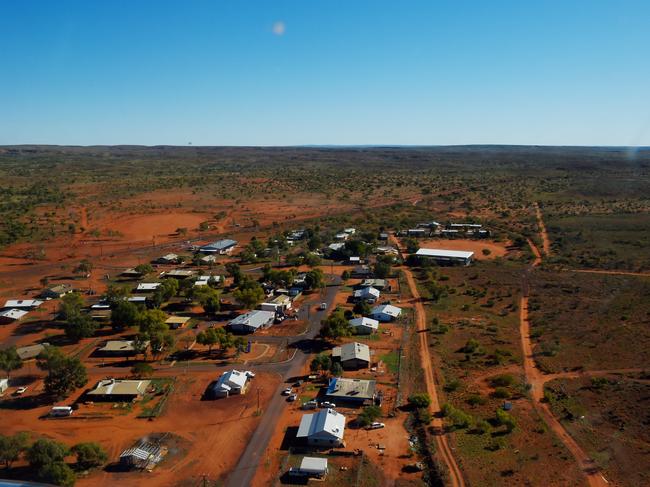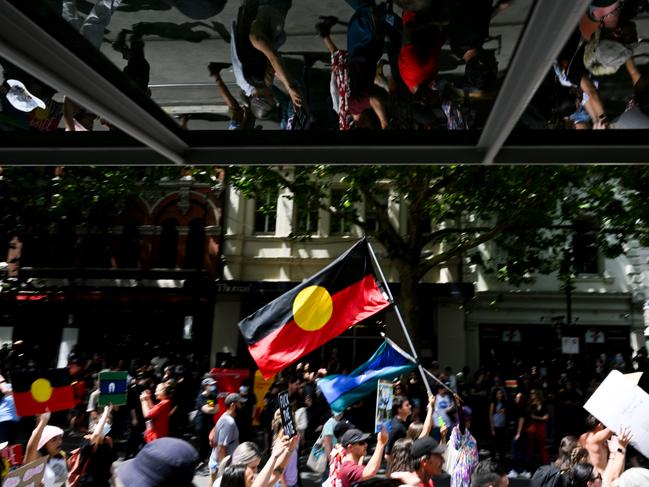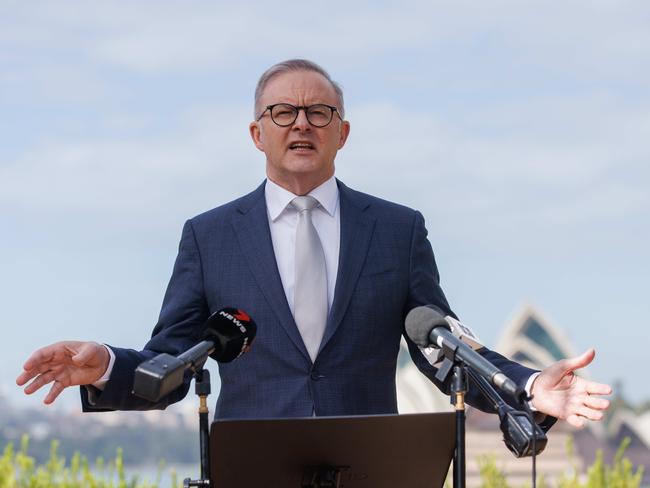Warren Mundine: The Voice to Parliament isn’t what Aboriginal people want
People campaigning for the ‘Yes’ vote will tell you Aboriginals overwhelmingly support it— the only ones I know who support it are academics and lawyers, people from the pro-voice organisations and some city-based, affluent Aboriginals, writes Warren Mundine.
Opinion
Don't miss out on the headlines from Opinion. Followed categories will be added to My News.
People campaigning for a constitutionally enshrined Indigenous Voice will tell you Aboriginals overwhelmingly support it.
This argument works because it tugs at the heartstrings of well-meaning Australians who feel voting ‘Yes’ is what Aboriginals want.
It also discourages debate, implies voting ‘No’ is ignoring Aboriginal people, possibly racist, and wrongly conflates a ‘Yes’ vote with ‘doing the right thing’. I don’t believe this claim.
Let’s start with the supposed claim that 80 per cent of Aboriginals support the Voice based on an Ipsos poll in January. The poll was commissioned by the Uluru Dialogue, the lobby group for the Uluru Statement. And it surveyed only 300 people.
I guess it depends which 300 people you speak to.

I’ve personally spoken to well over 300 Aboriginals from all over Australia, including from remote and regional Australia. Almost without exception, all have told me they either oppose the Voice, don’t understand it (or haven’t even heard of it) or are deeply cynical about it.
The only Aboriginals I know who support it are academics and lawyers, people from the organisations campaigning for it and some city-based, affluent Aboriginals whose views usually mirror other city-based, affluent Australians, so that’s hardly a surprise.
Last month ABC reporters travelled to three remote Aboriginal communities, Kaltukatjara, Warakurna and Cosmo Newbury, who have a combined Aboriginal population of 474 according to the last census.
Most people in those communities had no idea about the Voice or whether it would really help them.
One community leader said they “got a shock” when the ABC arrived because they’d never heard of the Voice.
Another said “What I’m really asking is: if they will come and talk to us and if they will explain?”

The lone supporter mentioned in the report, from Cosmo Newbury in WA, thought the Voice might help his community by giving them “a direct line to the top” saying: “Usually, in the past, we’ve had to go to bureaucrats … And, of course, bureaucrats, they really don’t know what they’re talking about in Aboriginal affairs.” He’ll be disappointed to learn the Calma/Langton Co-design Report for the Voice proposes a vast new bureaucratic structure (on top of the existing vast bureaucratic structures) with WA having only 3 representatives at the National Voice, one for remote WA.
So, it’s unlikely his community will have a direct line to anything, except more bureaucrats.
Voice supporters also cite consultations for the Uluru Statement and the Co-Design Report. On its first day, the Joint Select Committee on the Voice Referendum heard this was “the most proportionately significant consultation process that has ever been undertaken with First Peoples”.
I believe this consultation was fundamentally flawed and designed to exclude dissenting views.
The so-called Uluru Statement was adopted at a gathering of 250 delegates at a Yulara Resort. I and others have spoken to Aṉangu elders angry it was named for their country saying it’s not their culture. Some delegates walked out saying, “It’s not a dialogue, it’s a one-way conversation. Every time we try and raise an issue, our voices are silenced”.

Delegates were hand-picked from 12 ‘Dialogues’ and one ‘Information Day’ over the previous 6 months. The Referendum Council says attendance was by invitation only which “ensured” each session reached consensus.
I take this to mean dissenting opinions were deliberately avoided. Referendum Council Co-Chair, Pat Anderson, reinforced my view recently when she said “naysayers” were intentionally excluded.
Over half the sessions were in capital cities even though only 37% of Indigenous people live in capital cities (in the NT, only 24%). Sessions were capped at 100 attendees: 60% for First Nations/traditional owner groups and another 40% for community organisations and “key individuals”. We don’t know how many of the 40% were Indigenous. But we do know that, at most, fewer than 0.25% of Indigenous adults were consulted in group discussion settings mostly held in locations where most Indigenous Australians don’t live.
The original remit of the Referendum Council was to advise on constitutional recognition. Attendees thought that’s what they’d been invited to discuss. A national representative advisory body isn’t what most people think of when they think about constitutional recognition. We’ve no idea when or how the idea of a “Voice” emerged in those sessions with no published transcripts or minutes. I’m aware of some attendees who don’t recall it being discussed at all.

The consultation process for the Co-Design Report informed people of the Voice as a given and didn’t create any opportunity for people to suggest alternatives. The Co-Design Group personally met with 5,400 people and we’ve no idea how many of them were Indigenous. Even if all were, that’s fewer than 1% of Indigenous adults. But that’s not a safe assumption since 90% of individual submissions and 80% of surveys actually came from non-Indigenous Australians, amongst which support for the Voice was especially strong.
In February, ABC presenter Stan Grant reported on a large extended family gathering at the former Warangesda mission on his Wiradjuri country. Grant said many people there told him they didn’t understand the Voice. He did find some supporters. As well as some who were sceptical.
His uncle reminded him they’re a tribal people and should control themselves and said “he doesn’t want Indigenous people from outside our nation to speak for us.” And that’s the problem.
This so-called recognition recognises Australia’s first peoples the way Europeans looked at us in the 1700s: as a race of people, not as many nations.
Voice representation will be based on how British colonists divided up our lands: according to state and territory borders and not according to our first nation groups.
The Voice will entrench Aboriginal identity the way others look at us. Not the way we look at ourselves.
Nyunggai Warren Mundine AO DUniv (Hon. Causa) is Director, Indigenous Forum, Centre for Independent Studies.





